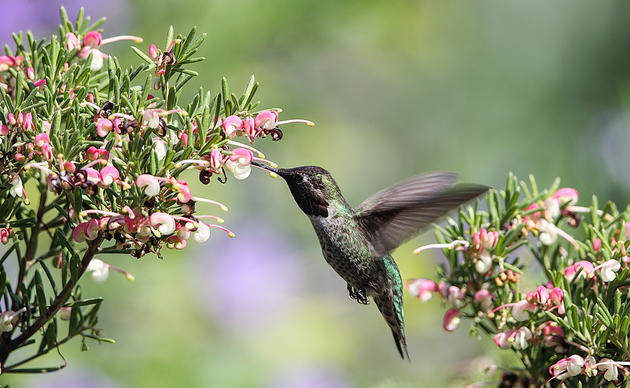The U.S. House of Representatives yesterday approved a bill to provide more water to San JoaquinValleywater districts over objections from a broad coalition of water advocates and conservation groups (including Audubon California). The bill approved on a mostly partisan vote, and its prospects look dim in the Senate, where both California Senators have said they will fight hard to kill it.
Audubon California opposes the bill because it seeks to subvert a Congressionally-approved settlement to restore the San Joaquin River, undermines the Endangered Species Act, threatens thousands of salmon fishing jobs, and jeopardizes water quality and reliability. In a statement issued immediately after the vote, Sen. Dianne Feinstein sounded these same objections.
Feinstein noted that the bill ends a 20-year effort to restore fisheries and improve wildlife refuges in the Central Valley, issues of key concern to Audubon California. “Put simply, this bill is a recipe for disaster,” she said. “I have seen few pieces of legislation during my 19 years in the Senate that are as poorly considered and dangerously one-sided as this one.”
In a letter to Feinstein, National Audubon Society President David Yarnold thanked the Senator for her opposition to the bill and reiterated Audubon’s position that the legislation would not only set California water policy several decades, but will also harm the birds our organization cares deeply about.
“We have concluded that passage of H.R. 1837 could wreak havoc on the long term reliability of water supplies without which the network of vitally important national wildlife refuges and state wildlife areas in the Central Valley would be lost,” Yarnold wrote. “The Pacific Flyway, a migratory superhighway for millions of birds from the Arctic to Argentina would be diminished as a result.
Needless to say, Audubon will be part of a large coalition seeking to defeat H.R. 1837 when it comes before the Senate. About 1,000 Audubon activists inCaliforniasent emails to House members before the vote this week, and we would seek to greatly increase that number if the bill comes up in the Senate.
Since 1902, Congress has required the federal government to follow state water law whenever possible. H.R. 1837 would overturn this fundamental principle, which has been the driver of every federal reclamation project for more than a century. Among other implications, this approach would preempt implementation of the bipartisan package of water policy reform legislation adopted by the State of California in 2009, which strengthened environmental protections for endangered species inCalifornia, mandated the development of a comprehensive Delta Plan, and established co-equal goals of improving water supply reliability and restoring the Bay-Delta estuary.
Title I of H.R. 1837 would eliminate science-based protections for salmon and other endangered species that are required under both California law and the Endangered Species Act, instead substituting measures that were crafted as part of a short-term deal in 1994, in a vastly different ecological and scientific environment. The State of California has been on record since 2009, under both Republican and Democratic Administrations, opposing riders and legislation to weaken, suspend, or overturn the Endangered Species Act in the Bay-Delta.
Further, this bill would threaten the reliability of California’s water supplies. The authors of H.R. 1837 assert that this bill would make a peripheral canal unnecessary. We agree that this legislation would terminate the Bay Delta Conservation Plan process, but the legislation does nothing to protect California’s water supply infrastructure from the risks of earthquakes or levee failures in the Bay-Delta nor invest in the regional supplies that are necessary for long-term reliability.
In addition, Title II would overturn the 2009 court approved San Joaquin River Restoration Settlement Act (enacted as part of P.L. 111-11), which ended twenty years of litigation on theSan JoaquinRiver. The Settlement and the Act were supported by all parties to the litigation and numerous water districts in theSan JoaquinValleyand across the State, along with Members of Congress from both sides of the aisle, including then-Representative Pombo and Senator Feinstein. By overturning this settlement, H.R. 1837 attempts to preempt state law that requires river restoration, and eliminates flood protection and water supply projects for farmers that were approved as part of the Settlement and Act.
Finally, Title I of H.R. 1837 would significantly undermine the 1992 Central Valley Project Improvement Act, signed into law by President Bush to encourage water conservation, require compliance with state law, make modest reforms in contracting to reduce subsidies, and establish water supply and ecosystem protection as co-equal goals of the Central Valley Project. This decision was essential to bird conservation.
California’s Bay-Delta estuary is the lifeblood of the salmon fishery in California. The closure of the salmon fishery in 2008 and 2009 resulted in thousands of lost jobs in California and Oregon, and hundreds of millions of dollars in lost income, each year. The livelihoods of commercial and recreational salmon fishermen, Delta farmers, fishing guides, tackle shops, and communities across California and along the West Coast depend on the environmental protections that H.R. 1837 would eliminate.
By Garrison Frost
Monthly Giving
Our monthly giving program offers the peace of mind that you’re doing your part every day.




